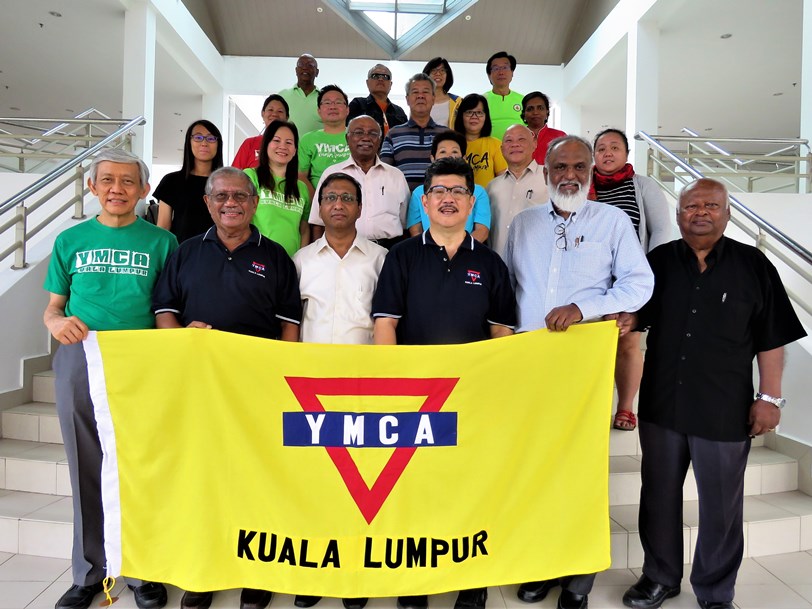HTML Source EditorWord wrap
↑Monthly eNewsletter of the Asia and Pacific Alliance of YMCAs
| This email contains graphics, so if you don't see them, view it in your browser. | ||||||||||||||||||||||||||||
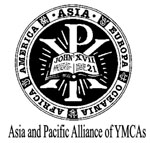  |
||||||||||||||||||||||||||||
The Global Summit and Forum were attended by hundreds of high-level representatives from National Tourism Administrations, city authorities, academia members and related tourism stakeholders, and offered a venue to share policy strategies and action plans to handle “overtourism” and to promote harmonious relationships between all stakeholders / co-creators of the tourist experiences, including travelers, host communities, tour operators, etc. One main theme of the discussion was “Fair and Inclusive Tourism: Building Cities for All”. Importance of networking Participating in such high-level meetings and events has provided tremendous opportunities for APAY to network as well as to promote the work of GATN.
~ Chan Beng Seng, GATN Coordinator ICF and Shanti Nepal held a Peace Thematic Workshop in BhaktapurIn partnership with Shanti Nepal, the ICF National Forum of Nepal, ICF held a five-day peace workshop on the themes of Human Rights, Conflict Analysis and Non-Violent Communication. This was held during September 9-14, 2015 at Bhaktapur Guest House located at the hilltop of Chundevi, Katunje, which is about 30 minute-drive from the capital city of Kathmandu. There were only 16 participants who were mostly young professionals, more than half being alumni of ICF’s School of Peace from 2007 - 2017. Following the preliminaries of orientation and introductions of participants facilitated by Umesh KC, the ICF Coordinator, Muriel Orevillo-Montenegro introduced the History and Mission of YMCA, as well as the Programs of APAY. A School of Peace alumnus, Shreeram Chaudhary, an attorney-at-law and currently the chair of Shanti Nepal, led the discussion on the Universal Declaration of Human Rights (UDHR). He highlighted the document as the “mother” of all other conventions and protocols including the International Humanitarian Law. He also pointed out that the sacred texts of some religions were among the sources in the formulation of the UDHR. He further juxtaposed the UDHR with the Nepali Constitution to show that human rights have a space in the law of the Nepali land. The ICF Coordinator, Muriel Orevillo-Montenegro, gave a lecture-workshop on Conflict Analysis as a basic step towards peacebuilding. Then she introduced the Reflecting on Peace Practice (RPP) approach to conflict analysis and conflict mapping. The participants responded that the approach was rather new to them. Their seeming difficulty stemmed from the exercises that required not just a good grasp of the conflict but also in identifying the specific key factors and actors for and against peace. The conflict mapping exercise further challenged the participants to go deep in their analysis and in locating the specific key actors, factors, and a window in the area that could serve as the point of entry for their intervention program. The third theme revolved around Non-Violent Communication (NVC) based on the approach to non-violent living developed by Marshall Rosenberg, the founder of the Center for Non-Violent Communication. A certified NVC facilitator, Amina Mambuay who hailed from the Philippines, facilitated the workshop. NVC is grounded on Rosenberg’s notion that we, as human beings, have inner gift for compassion and but we resort to violent language or behavior because we do not know how to express our observations, our feelings, our needs and our requests. As in Conflict Analysis perspective, when needs are not met, violence arises. It was clear that the participants wanted to explore an area to their hearts and their day-to-day life, as they got so engrossed in trying to analyze their own language particularly when they portrayed the language of the jackal (blaming) and the giraffe (connecting). It seemed simple, but the participants struggled on the mode of exercising non-violent communication by applying self-empathy, receiving emphatically and expressing honestly. As a result, almost everybody in the room clamored for a more thorough and intensive training on NVC. Upon the ICF Coordinator’s assertion that health is a peace issue, one participant, a young pharmacist Kabin Maleku, offered to give a one-hour talk about health in relation to peace.
An aspect of the thematic workshops is a brief community exposure. During the Teej festival, when Hindu women wore red dresses, danced and prayed for the wellness of their their husbands, the group went to visit the village of Khokana in Lalitpur. This village is still recovering from the April 2015 earthquake that destroyed 90% of its structures. In their conversation with a community leader, the participants learned that Khokana, a rich farming valley, is facing the threat of being destroyed – its farms as well as its cultural and historical religious sites with the upcoming construction of a “fast track road” of the Kathmandu-Tarai expressway project. After the village, the group visited a non-government organization that serves as an umbrella of NGOs in the area. Then, the group went on to visit the Patan Museum and temples in Lalitpur. The place is intriguingly beautiful. These sacred places helps make one understand deeper both the Hindu and the Buddhist religious traditions, and how such traditions influenced the architecture of the structures built in the area. The workshop was made meaningful with the morning prayers led by the participants, a couple of teambuilding exercises in one of the evenings and community visit reflections led by ICF Program Officer Hem Sopharak. SoP alumni Bibek Shahi served as the over-all coordinator in organizing of the workshop. ~ Muriel Orevillo-Montenegro, ICF Coordinator
Prof. Kim Heung-Soo, newly elected President of Korea YMCA
The newly elected President Kim served as Director at the Institute of the History of Christianity in Korea from 2006 to 2012. From 2011 to 2014, he served as Founding President of the Historical Society of Asian Christianity. In Korea YMCA, among others, he served as President of Daejeon YMCA from 2010 to 2012, as well as Executive Board member at the National Council YMCAs of Korea from 2016 to 2018. Currently, he also contributes as Editor in Chief of monthly Christian Thought. As Member of Central Committee, the National Unification Advisory Council, he is active in peace and reunification movement as well. In an interview with a newspaper, he said “I will happily serve as President for advancing YMCA movement in Korea, in particular, on peace movement together with North Korean people. We need to learn from each other and work together as North Korea and its churches started the peace movement earlier than us. We are thankful to world YMCA family for unanimously adopting the resolution on Korean Peninsula peace and reunification proposed by Korea YMCA and look very much forward to collaborating for peace building in the Korean Peninsula and East Asia. I wish that both Peongyang YMCA and Hamheung YMCA in North Korea would be restored in the near future, which I believe is to complete Korea YMCA movement.”
Kuala Lumpur YMCA organizes Board RetreatThe Board Members of Kuala Lumpur YMCA met for a Board Retreat during 21 – 22 September 2018 at Methodist Center, Port Dickson, Malaysia. Rt. Rev. Father Philip, President of KL YMCA inaugurated the retreat, while the entire session was coordinated by Dr. Fong Chee Loo, the Honorary Secretary of Kuala Lumpur YMCA. The Board Members and the Head of Departments of the Kuala Lumpur YMCA participated at the retreat. Morning worships were led by Mr. Lim Chee Sing with Rt. Rev. Father Philip and Rev. Dr. Allan Vairamuthu spoke on spirituality during the worships. The 5 year strategic plan of KL YMCA was finalized during this retreat, while issues like the branding of the YMCA, possibility of raising funds through crowd-funding for the new KL YMCA building were elaborately discussed. The construction process of a new building and its usage were also discussed. Mr. Encik Azman Karim, Mr. Vincent Foo, Ms. Genevieve, Ms. Irene Tan were the key discussants on these issues. APAY Executive Secretary for Programs Mr. Duncan Chowdhury was invited at the retreat as a resource person to share about the APAY and WA Structure, relations between the YMCAs at local, national, regional and global level and how a local YMCA like KL YMCA could participate in various programs of YMCA and contribute towards strengthening the regional alliance of the YMCAs. Mission Clarity, Social Relevance and Institutional Viability had been defined as the three pillars for Movement Strengthening. The participants realized that for the YMCA to be strong and relevant, the Board of Directors must have a clear vision, the programs have to be relevant to the young people and communities and the YMCA has to have a viable and sustainable foundation. The retreat concluded with a closing prayer by Rev. Victor Vethamani.
~ Duncan Chowdhury, Executive Secretary
|
||||||||||||||||||||||||||||
|
||||||




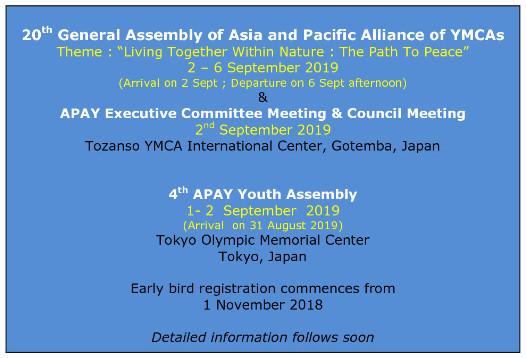
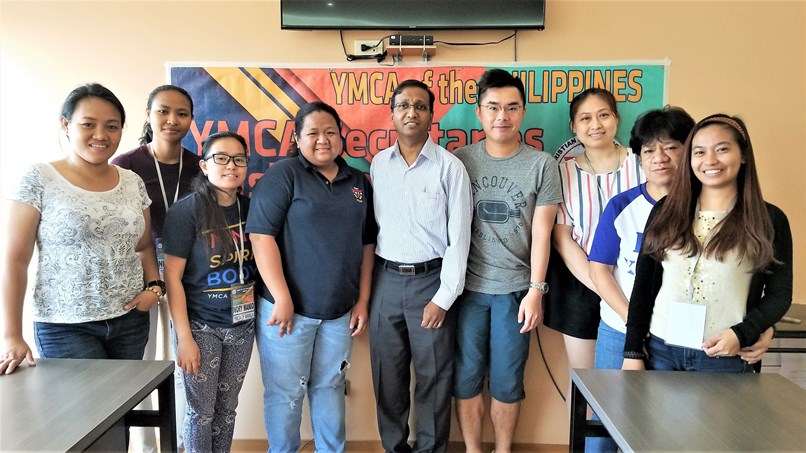
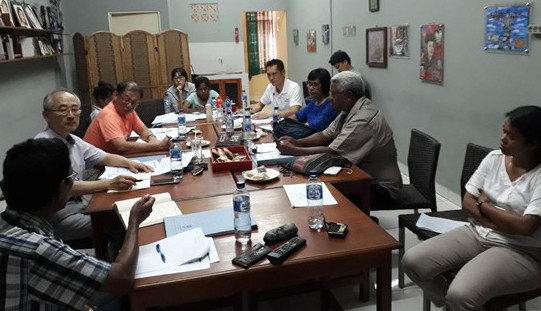
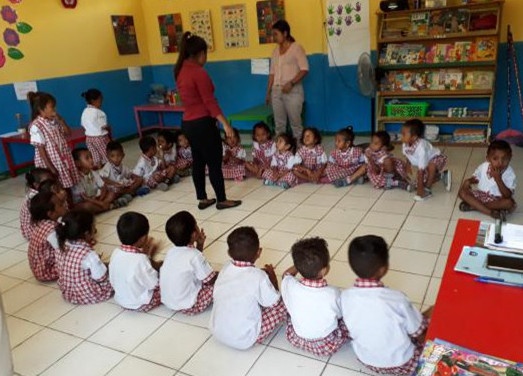
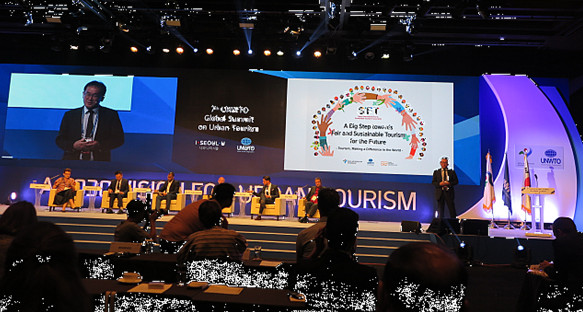
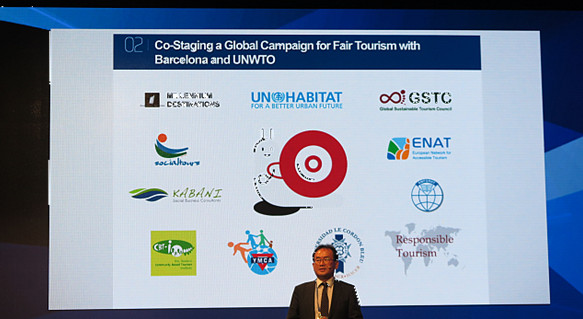
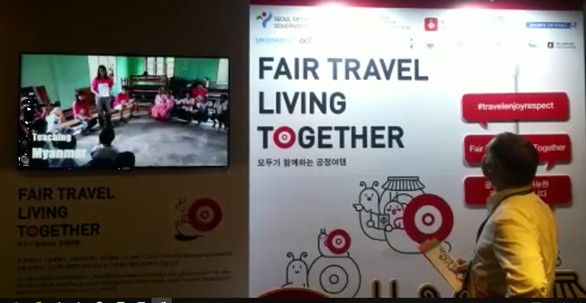
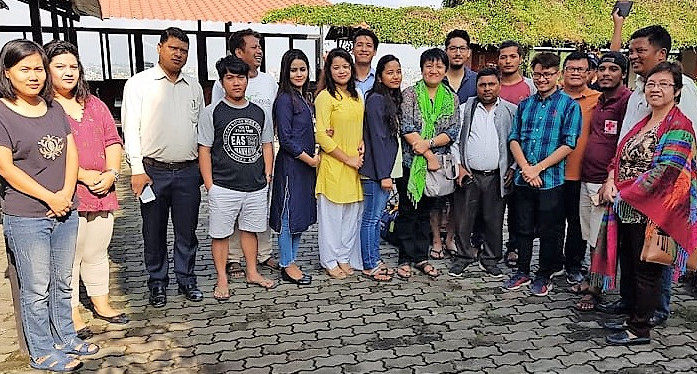
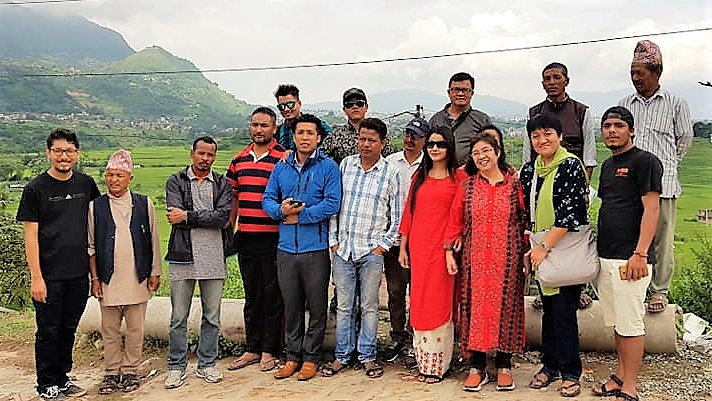
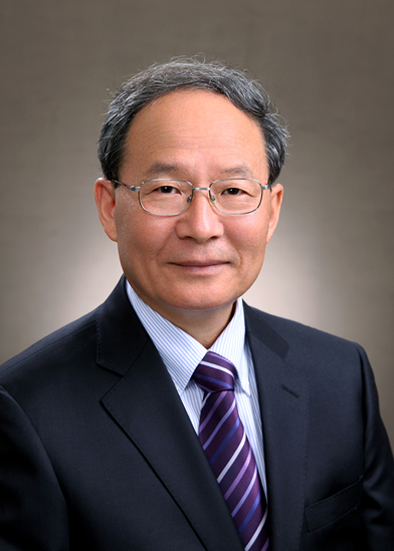 Prof. Kim, Heung-Soo has been elected as new President of the National Council of YMCAs of Korea at the bi-annual General Assembly held in Gunsan, Korea on 29th to 30th June this year. Dr. Kim, who is Honorary Professor at Mogwon University, studied history of religion at Boston University and obtained Phd. in Seoul National University.
Prof. Kim, Heung-Soo has been elected as new President of the National Council of YMCAs of Korea at the bi-annual General Assembly held in Gunsan, Korea on 29th to 30th June this year. Dr. Kim, who is Honorary Professor at Mogwon University, studied history of religion at Boston University and obtained Phd. in Seoul National University.
